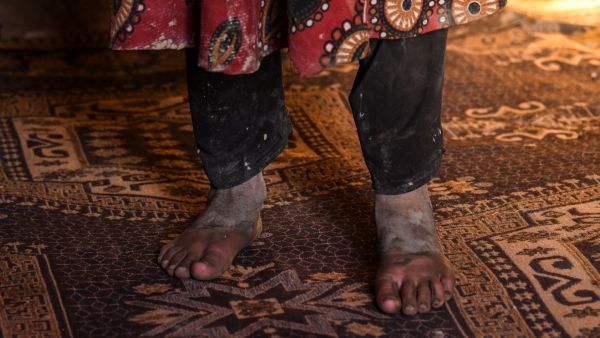United Nations agencies have warned on Monday that millions of people in Afghanistan are facing hunger this winter due to government instability in the war-scarred nation and economic sanctions related to the Taliban takeover in the summer.
More than half of Afghanistan's population will face acute hunger this winter. We report from Kabul where people are facing a stark choice between migration or starvation pic.twitter.com/XhbJBTrMaq
— Fatima Muhammad (@FatimaM86772400) October 25, 2021
The World Food Program and Food and Agriculture Organization said in a joint report that drought, fighting and economic decline are combining to expose nearly 23 million Afghans to possible hunger between November and March.
The study, the Integrated Food Security Phase Classification, is a global standard for assessing food security.
The record number facing acute hunger represents over half the Afghan population and pushes Afghanistan's level of need higher than other crisis nations like Ethiopia, South Sudan, Syria and Yemen.
"We cannot allow Afghanistan to be a collective failure -- the international community must prevent the crisis from becoming a catastrophe," the WFP said in a statement. "Things were already desperate, and now continuing drought, escalating displacement, the collapse of public services and a deepening economic crisis have driven the entire country to the precipice."
Please Pray for Afghanistan ?
— ਜ਼ਮਾਨ زماں (@Delhiite_) October 25, 2021
Afghanistan faces worst hunger crisis since records began as children starve to death in Kabul
Over five million children are now just a step away from facing the effects of famine in the country https://t.co/prNL0cIxgG
The report notes that the COVID-19 pandemic, withdrawal of U.S. forces and Taliban takeover have worsened the crisis and led urban areas in Afghanistan to see food insecurity at similar rates to rural communities for the first time.
"Children and older people are at particular risk," Jean-Martin Bauer, a WFP food security specialist who worked on the report, said in a statement. "A million children are at risk of severe acute malnutrition, and two million more are at risk of moderate acute malnutrition. Additionally, 700,000 [pregnant or breastfeeding] women also need support.
"With no assistance, people will take years to get back on their feet -- we might be sowing the seeds of bigger problems if we don't respond now."
Last week, a U.N. emergency trust fund called for more than $667 million in aid over the next 12 months to supply fiscal aid to needy Afghans.
This article has been adapted from its original source.












